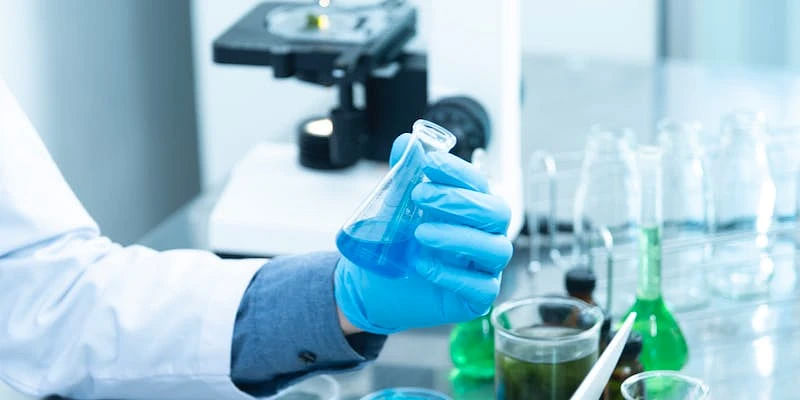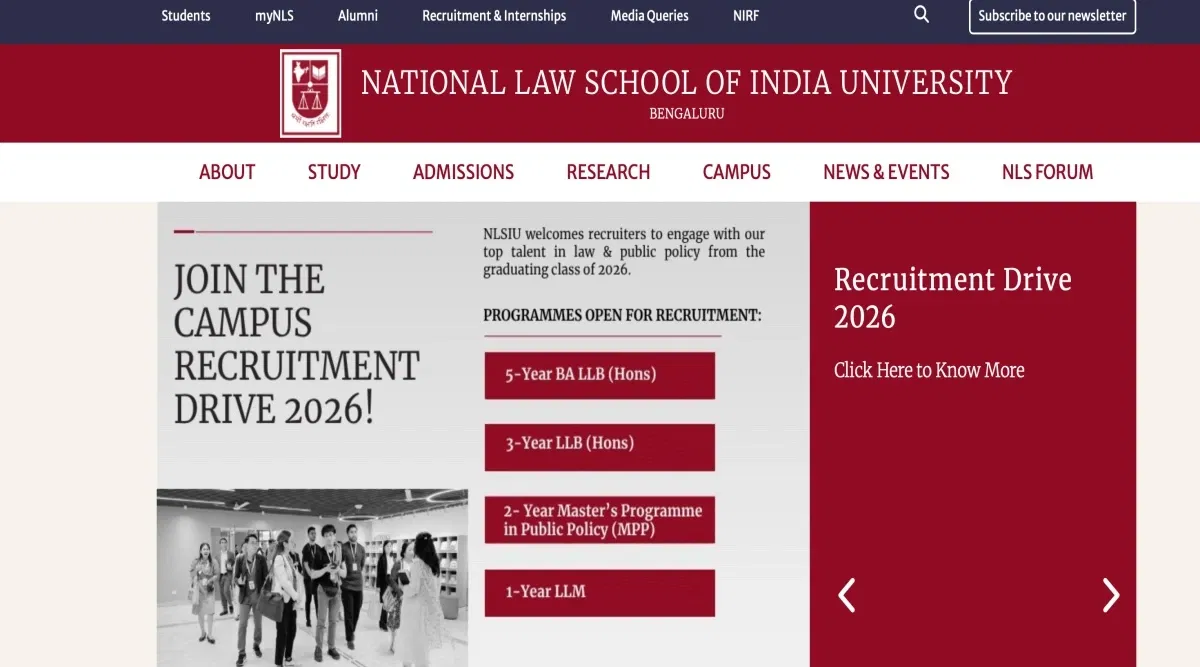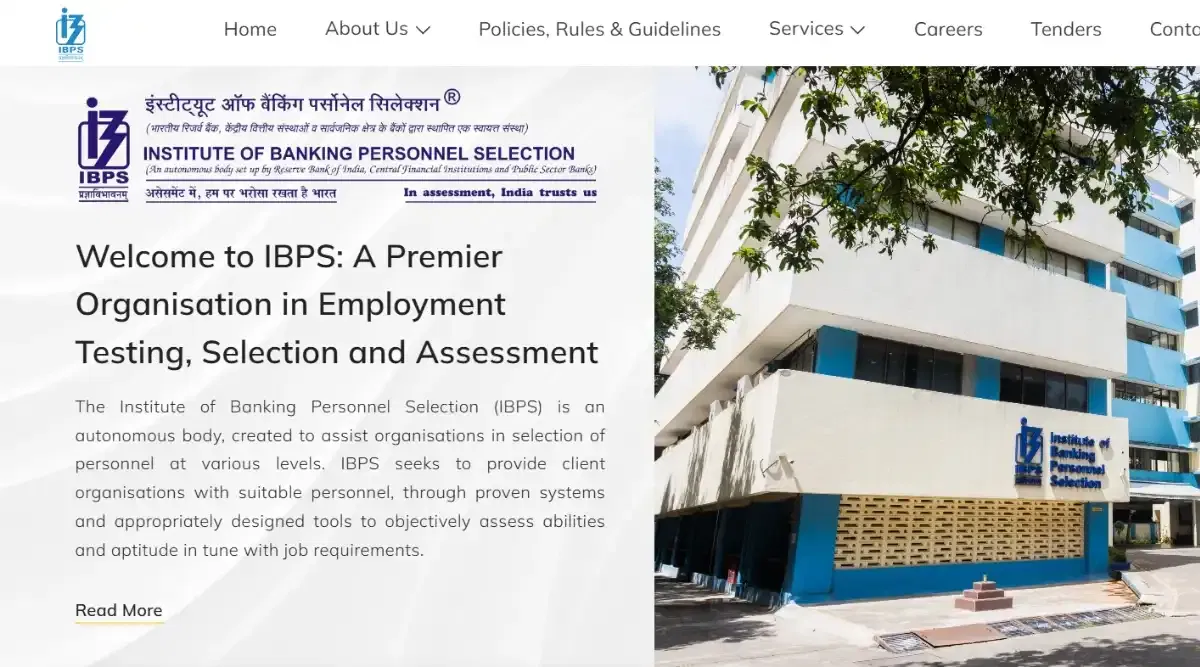Best courses after BSc nursing are PG diploma in biotechnology, PG diploma in nanobiotechnology, MBA in biotechnology, MSc in forensic science, and these courses provide lucrative job options.
Table of Contents
The top 10 best courses after BSc chemistry in MSc programs are MSc in biochemistry, molecular chemistry, microbiology, environmental science, and forensic science. The PG diploma courses after BSc chemistry are the PG diploma in analytical chemistry, PG diploma in biotechnology, PG diploma in nanobiotechnology, MBA in biotechnology, and MBA in laboratory management.
MSc Courses After BSc Chemistry
The top 5 best courses after BSc chemistry in MSc are MSc in biochemistry, MSc in molecular chemistry, MSc in microbiology, MSc in environmental science, and MSC in forensic sciences.
1. MSc in Biochemistry
After the two-year BSc Chemistry study, MSc Biochemistry is another best course after BSc chemistry. It is an investigation into biological chemistry as it relates to living things. Through biochemical metabolism and signaling, biochemical processes give life its fantastic complexity. Additionally, a biochemistry course discusses the composition and roles of several biological substances, including proteins, lipids, carbohydrates, nucleic acids, and others.
Eligibility Criteria: The candidate must be a science graduate with Chemistry as one of the subjects.
Course Duration: 2 Years
Course Fees: INR 1,00,000 - 3,00,000
Job Profile: Research Associate, Lab Technician, Pharmacologist, Biochemist, Quality Controller
Average Salary: INR 4 LPA
Also Check: Top MSc Biochemistry Colleges in India
2. MSc in Molecular Chemistry
One of the most well-known best courses after BSc chemistry is MSc Molecular Chemistry. It lasts two years, though depending on the university, it can sometimes last up to four years. The degree program provides opportunities for students in various research-oriented fields, including pharmaceutical businesses, government and commercial organizations, and the organic, inorganic, analytical, and physical sciences.
Eligibility Criteria: The candidate must be a science graduate with Chemistry as one of the subjects.
Course Duration: 2 Years
Course Fees: INR 2,00,000 - 3,00,000
Job Profile: Chemist, Research Associate, Lab Scientist, Operations Manager, Quality Assurance Manager, Professor, Content Developer
Average Salary: INR 3 LPA
Also Check: Top MSc Chemistry Colleges in India
3. MSc in Microbiology
Science students can pursue a two-year MSc in Microbiology at the postgraduate level. This is a specialized course that gives students professional knowledge of the subjects through a variety of research and project work. A person must have a bachelor's degree in microbiology or an equivalent course for this specific course.
Eligibility Criteria: The candidate must be a science graduate with Chemistry as one of the subjects.
Course Duration: 2 Years
Course Fees: INR INR 20,000 - 2,00,000
Job Profile: Quality Control Executive, Associate Researcher, Academic Lecturer, Microbiological Auditor, Lab Technician, Clinical Executive
Average Salary: INR 3.5 LPA - 7 LPA
Also Check: Top MSc Microbiology Colleges in India
4. MSc in Environmental Science
Biology and physical science components are included in the MSc Environmental Science course. In addition to giving students a solid foundation in this subject, the two-year degree program's curriculum gives them the tools to address environmental problems like pollution, water depletion, waste management, soil erosion, etc. Additionally, it offers students a place to get fieldwork experience.
Eligibility Criteria: The candidate must be a science graduate with Chemistry as one of the subjects.
Course Duration: 2 Years
Course Fees: INR 1,00,000
Job Profile: Environmental Scientist, Environmental Consultant, Environmental Science Manager, Lecturer
Average Salary: INR 2.5 - 4.5 LPA
Also Check: Top MSc Environmental Science Colleges in India
5. MSc in Forensic Science
A one- or two-year postgraduate degree program called the MSc in Forensic Science is intended to give graduates and forensic practitioners academic knowledge and real-world applications in the field of forensic science. Students are first taught the principles of forensic biology and forensic chemistry as they relate to forensic investigations in this course.
It then investigates the fields of evidence retrieval and processing for use in court cases involving different types of evidence discovered at crime scenes. Students enrolled in the master's program have access to a wide range of contemporary facilities and labs.
Eligibility Criteria: The candidate must be a science graduate with Chemistry as one of the subjects.
Course Duration: 2 Years
Course Fees: INR 20,000 - 3,00,000
Job Profile: Corrections Officer, Compliance Officer, Crime Scene Investigation, Police Detective, Forensic Medicine Professor, Forensic Psychologist, Private Security
Average Salary: INR 2 LPA to 10 LPA
Also Check: Top MSc Forensic Science Colleges in India
PG Diploma Courses After BSc Chemistry
The top five best courses after BSc chemistry are the PG diploma in analytical chemistry, PG diploma in biotechnology, PG diploma in nanobiotechnology, MBA in biotechnology, and MBA in laboratory management.
1. Postgraduate Diploma in Analytical Chemistry
The Postgraduate Diploma in Analytical Chemistry (PGDAC) is a continuing education program designed to improve the abilities of chemists working in national laboratories, industry, and research and development. Additionally, it is helpful for all recent science graduates hoping to work in these labs.
Eligibility Criteria: The candidate must be a science graduate with Chemistry as one of the subjects.
Course Duration: 3 Years
Course Fees: INR 9,600
Job Profile: Chemist, Pharmacologist, Research Scientist, Quality Controller, Material Science
Average Salary: INR 4 - 6 LPA
Also Check: Top PGD Analytical Chemistry Colleges in India
2. Postgraduate Diploma in Biotechnology
Biotechnology PGDM combines science and management. Graduate students who are most prepared to pursue the course and a job in the bioindustry have previously studied bio subjects such as genetics, molecular biology, biochemistry, embryology, and cell biology.
Eligibility Criteria: The candidate must be a science graduate with Chemistry as one of the subjects.
Course Duration: 3 Years
Course Fees: INR 90,000
Job Profile: Biotechnology Project Manager, Biotechnology Sales Manager, Biotechnology Production Manager
Average Salary: INR 10 LPA
3. Postgraduate Diploma in Nanobiotechnology
This course integrates concepts and abilities from several fields, such as biology and chemistry. It also strongly emphasizes morality, social duty, realistic limitations, and lifelong learning. Aspects of nanotechnology that are taught to students include how nanoparticles and nanotubes are made, their characteristics, and how they are used in various industries. Additionally, you will learn about the processes involved in biosynthesis and how nanomaterials are used.
Eligibility Criteria: The candidate must be a science graduate with Chemistry as one of the subjects.
Course Duration: 1 Year
Course Fees: INR 1,00,000
Job Profile: Nanotechnology Advisor, Firm Manager
Average Salary: INR 14 LPA
Also Check: Skill Development Courses List for Students 2023
4. MBA in Biotechnology
The two-year MBA Biotechnology program teaches the foundations of both business and biotechnology after graduation. The curriculum aims to give students a grasp of this new technology's economics.
Students must have completed their graduation in science, engineering, or medicine to be eligible to pursue this course.
Eligibility Criteria: The candidate must be a science graduate with Chemistry as one of the subjects.
Course Duration: 2 Years
Course Fees: INR 6,00,000
Job Profile: Biotechnology Researcher, Analyst, Product Manager
Average Salary: INR 10 LPA
Also Check: MBA in Biotechnology Jobs, Scope, Salary in India
5. MBA in Laboratory Management
The MBA course on pathology lab administration will improve students' skills and give them a deeper comprehension of the complexities and subtleties of pathology labs. This profession covers several topics, including clinical chemistry, immunology, hematology, and blood sampling, where students might find work prospects.
Eligibility Criteria: The candidate must be a science graduate with Chemistry as one of the subjects.
Course Duration: 2 Years
Course Fees: INR 8,00,000
Job Profile: Lab Manager, Program Manager, Scheduling Staff, Reordering Supplier
Average Salary: INR 4 - 8 LPA
Also Check: Top 10 Trending Jobs in India























POST YOUR COMMENT